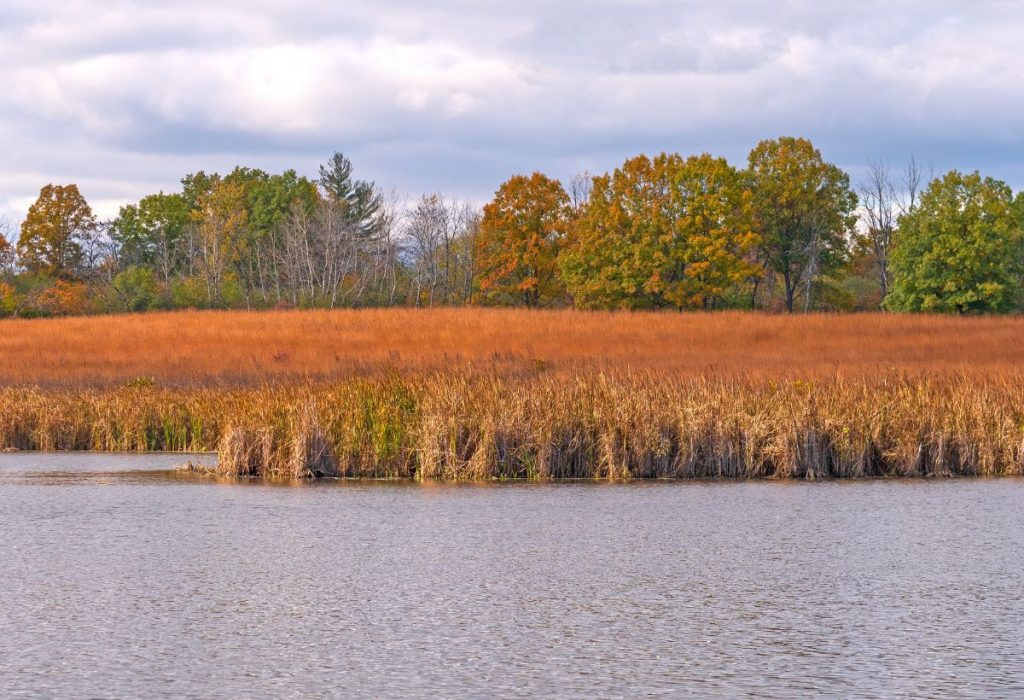By: Hannah Flath, Climate Communications Manager
I’ve been eligible to vote in three Presidential elections – 2016, 2020, and 2024. That is to say, I’ve experienced quite a range of emotions about our country’s democratic process and the leaders who have run for office. Whether you feel disillusioned, afraid, or hopeful about the federal election, it’s important to remember that “down-ballot” races–the local and state elections that often appear further down on your ballot–matter just as much and often have a huge impact on our daily lives. What’s more, regardless of the outcome of this year’s federal election, Illinois can and will continue to make progress on the environment if we elect local and state leaders who are grounded in climate science and climate justice.

The Impact of Down-ballot Races
I had the opportunity to work as an organizer on the now-Senator Karina Villa and now-Representative Maura Hirschauer’s campaigns through Sierra Club Illinois’ Victory Corps program. Sierra Club Illinois Director Jack Darin emphasized that our effort to ensure Sierra Club’s endorsed candidates were elected to public office was part of a “life-cycle of environmental organizing” – in other words, by electing climate champions to public office, we’re able to pass environmental legislation and build victories at the local, statewide, and national levels.
Jack was right. Senator Villa and Representative Hirschauer, who won their respective elections, went on to cast votes in favor of the Climate and Equitable Jobs Act in 2021. This landmark legislation set Illinois on a path to a 100% renewable energy future while also lifting up workers and environmental justice communities. With the passage of CEJA, Illinois is now a national leader on climate policy and has gone on to further capitalize on climate investments in the federal Inflation Reduction Act. Senator Villa and Representative Hirschauer also both went on to vote in favor of legislation protecting Illinois-based clean energy projects from a growing number of county-level bans.
This is the life-cycle of environmental organizing at work – with climate champions in every level of public office—from local municipalities to the U.S. Congress—we can pass truly monumental legislation that impacts us, our neighbors, and communities across Illinois, and also fight attacks on those policies so that we preserve our clean energy progress. In that way, when you head to the polls, you aren’t just voting for the candidates on your ballot, you’re also voting for the pro-environment (or pro-oil and gas) policies those candidates will vote on and may become the law of the land.
Clean Air and Water are On the Ballot
When the 104th Illinois General Assembly is inducted into office next January, legislators will consider, negotiate, and vote for policies like the:
- Clean and Reliable Grid Act: in the face of the continued onslaught of extreme weather events fueled by climate change, this legislation will strengthen Illinois’ power grid with reliable clean energy while delivering cost savings for consumers. Learn more and take action here.
- Wetlands Protection Act: legislation that will ensure Illinois steps up in the wake of the U.S. Supreme Court’s 2023 weakening the Clean Water Act to ensure Illinois’ wetlands are free from pollution, provide clean drinking water, and remain safe habitat for wildlife. Learn more and take action here.
- Clean and Equitable Transportation Act (CETA): Illinois’ public transportation system is facing a funding crisis, but a blank check won’t fix the problem. The CETA will fully fund Illinois’ transportation system while also improving public transit’s governance and services, electrifying vehicles, and increasing access to other mobility options like biking, walking, and rolling.
- Polystyrene Foam Foodware Ban: legislation that will reduce single-use plastic and keep dangerous plastic pollution out of Lake Michigan.
Your Vote is Your Voice
These bills will have real-life impacts on everyday Illinoisans across every corner of the Prairie State, affecting everything from our utility bills, the quality of our drinking water, and our access to clean, reliable, and equitable public transportation. The candidates you elect this November could be the deciding vote on those policies. That’s why local elections are so critical.
If you haven’t yet made a plan to vote for climate champions, there’s still time. If your lawmakers in the General Assembly are running for re-election, check out IEC’s Environmental Scorecard to see how they voted in the spring legislative cycle, and consider their voting records when you head to the ballot box. You can also check out IEC’s election center to review all of the candidates on your ballot and make a plan to vote. The environment is on your ballot this year, and your vote is your voice. Make sure you use it.

About the Author
Since May of 2024, Hannah has led IEC’s communications on our climate and transportation priorities. She has seen firsthand how traditional and digital media can be used to make bold progress in the clean energy transition and is excited to work to ensure Illinois remains a national leader in equitable climate policy and climate solutions.

